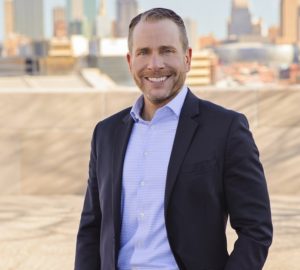Denis O’Brien [0:37]
Welcome to Episode 201, Recession Proofing your Money. Hey money clan, a warm welcome to the Chain of Wealth podcast. I’m your host, Denis O’Brien.
Katie Welsh [0:49]
And I’m Katie Welsh.
Denis O’Brien [0:50]
So Katie, quite a relevant topic today and something that’s been in the news quite a bit lately, and that’s recession’s.
Katie Welsh [1:27]
I feel like everybody’s stomach, there’s a little bit of a flip when this kind of topic comes up.
Denis O’Brien [1:5]
Well, you know, the thing is, I think everyone looks back and I think, Oh, you know, like, 2008, you know, remember how bad it was, we don’t want that to happen again. But let’s be real. We’ve been in a bull market for quite some time. And it’s called a market cycle for a reason. And that’s that, you can’t always be in a bull market, it has to turn at some point, and there will be ups and downs to the markets.
Katie Welsh [1:27]
But I don’t want this cycle to now like I’m finally getting my life together. I’m, you know, feeling like a real grown up. And now this is going to happen, like, come on.
Denis O’Brien [1:38]
Yeah. But I mean, to be fair, like, there’s only so much you can do, and you can’t time the mark. And we’ve always said that, and everyone knows that. So yeah, that’s what we’re going to be chatting about today. So before we dive on in, and if you guys haven’t already, don’t forget to join us on Facebook, you can head on over to chainofwealth.com/group, come and say hi, and join our awesome community. Alright Kate, Are you ready to dive on in?
Katie Welsh [2:1]
Yeah.
Denis O’Brien [2:2]
Fantastic. Let’s do it.
Voice Over [2:4]
Welcome to Chain of Wealth. Here’s your host, Denis inspiring you to begin your journey of financial freedom.
Denis O’Brien [2:17]
Alright Kate, so recession. So let’s chat about first off, what is the recession?
Katie Welsh [2:24]
Besides the heart sinking, slow panic that you go into?
Denis O’Brien [2:30]
Yeah. So I mean, I really don’t blame you saying that. But a recession is really not as bad as what do you think it is. It’s basically a period where we have this negative growth and typically it’s defined with this negative economic downturn has happened for two or more successive quarters. So it’s actually quite easy to meet the definition of a recession. And all that really means is that the economy isn’t really growing.
Katie Welsh [3:0]
So whenever I think of recession, I think of obviously 2008 when it was not the best time for a lot of people. And also like, I don’t know, hopefully, it’s not like Great Depression times. Like where we’re rationing butter.
Denis O’Brien [3:16]
Yeah, I mean, it depends on where you’re at in your journey as well as whether your going to be rationing butter. But um,
Katie Welsh [3:23]
I guess in a bull market, other like you could technically be rationing butter,
Denis O’Brien [3:27]
You couldn’t, some people are.
Katie Welsh [3:28]
You where you’re at financially.
Denis O’Brien [3:31]
Right. But today, we’re going to be chatting about what you really should be doing to sort of anticipate that, you know, there could be this recession coming. And the thing is, no one really knows whether it is going to come or isn’t going to come. And they may be some indicators, like we’ve heard a little bit about this inverse healed curve lately.
Katie Welsh [3:49]
Could you explain that a little bit,
Denis O’Brien [3:51]
I would have to say we’d have to do an episode on that for another day. It’s quite an involved thing. Yeah, but anyway, you know, like, what you can really do to prepare yourself. And I would say the number one thing is that you should always be conscious of your money and what your money’s really doing. But there are a couple things that you can do to help you out.
Katie Welsh [4:7]
To make it a little bit easier.
Denis O’Brien [4:9]
Exactly.
Katie Welsh [4:9]
And I think the first thing that comes to mind, and I know somebody out there is going to just sigh and feel bad, but pay down your debt, whether it’s your student loan, your car payment, a credit card, that debt is not going to help anybody. So you really, really, really, really want to get that paid down.
Denis O’Brien [4:33]
Yeah, I totally agree with you. And getting that debt control is going to help you so so much, because you’re not going to have these monthly obligations. And like I’ll even say like, if you are worried that a recession is eminent, even like paying the minimums on your student loan until you got every other debt under control, is maybe not a bad idea. Because ultimately, your student loans are a little bit more lenient, in terms of, you know, like being able to pay it all.
Katie Welsh [4:58]
Yeah, so you’re paying, you’re basically telling me that if I have a high student loan payment and a high credit card payment, pay the minimum on the student loan, and really deal with the credit card because credit card companies are not as understanding
Denis O’Brien [5:13]
Correct, yeah. And it also carries a much higher interest rate as well, yeah, you really want to pay as little interest as what you can, somebody else can do Kate as I would say, you could boost your emergency savings. So savings are critical as it is. So like that emergency fund, you could really put a lot more money into it, the anticipation that hey, maybe I might be losing my job, you know, you know what company you are working for, and whether or not they’re going to be affected by the recession, because some companies are hit more than others. So anticipating that you could say, well, you know, like my company is a bit more susceptible to the recession. And therefore, I should be worried about job security and really boosting up my emergency savings.
Katie Welsh [5:53]
Same Me too. So especially if you are paying off debt, that debt is going to eat into being able to be put into your emergency savings. So you definitely want to make sure you’re paying that down. And then, you know, little bit by little bit, putting more and more into your emergency savings in case, you do find yourself jobless for a little while.
Denis O’Brien [6:15]
Yeah, so another thing you can really do is find other ways to cut back. And the best way to really do this is to start budgeting, you know, if you start budgeting, you can see where your money’s going to, and really devise a plan and try figure out how could I better use my money within these different buckets? Or do I think that this XYZ subscription service is actually worth the $45, I’m paying every month when I’m not using it? You know, like, there are a lot of things like that, and everyone has them, you know, there is something that you’re paying for what you’re not using, consider whether it’s really useful, and whether you’re actually getting any benefit out of it before you pay another month’s worth of subscription.
Katie Welsh [7:0]
Well, yeah, and I think that goes right along with, you know, living within your means. And when you do cut back, then the money you’re saving from said expense, you can put that into your monthly, you know, increase of your emergency fund or your student loan payment or anything like that. So it’s basically like a win win.
Denis O’Brien [7:22]
Totally agree and Kate I think like living within your means. And I’m going to even go one step further and say
Katie Welsh [7:27]
Living below,
Denis O’Brien [7:28]
Below your means, Yeah.
Katie Welsh [7:30]
How did I know you were going to say that.
Denis O’Brien [7:32]
Because you know, the thing is, like, if you can learn how to do that. And you can get to a point where you have a 50% or more savings rate. And that’s on your take home earnings, that’s a really great position to be in, you know, you’re able to just save away cash as quickly as what you can. But the only way you can really achieve that is if you are in a position where you’ve managed to double your expenses and increase your income. And that’s what you’re doing the best of both worlds, you know?
Katie Welsh [8:0]
Well, I think to with the living within your means, and, you know, cutting back and everything. Homes are where you live is usually your biggest chunk, hopefully
Denis O’Brien [8:12]
Right.
Katie Welsh [8:12]
Of your money. So house hacking especially if you are tight with your money, or if you are feeling like you could be hit with a recession is your best bet. And by house hacking. I mean, like find a roommate, or move to a cheaper place. Or even do great things like Airbnb]a room out. We have Airbnb a room out before and we’ve made so much money and it’s such easy work. So house hacking, if you do need to have, you know, some extra money to help pay things off and help you live within your means.
Denis O’Brien [9:18]
Yeah, I mean, I remember when we were Airbnbing we had some months where our Airbnb revenue was more than our actual payment that we were doing every month for our housing.
Katie Welsh [9:0]
Goodness, weren’t those nice months.
Denis O’Brien [9:3]
Those were really good months. You know that extra money, it may, it may not sound like much, but it really is and having that extra cash that you can just stash away and really start preparing yourself for the longer haul is really what you should be doing.
Katie Welsh [9:18]
Yeah, for sure.
Denis O’Brien [9:19]
Yeah. So I would have to say that the next thing is focusing on the long haul.
Katie Welsh [9:23]
So can I ask you, just to clarify, like, what does that actually mean?
Denis O’Brien [9:28]
So it means you should always be looking long term, you know? And that essentially means that remember when we said dollar cost averaging when it comes to investing
Katie Welsh [9:37]
Yes. And buy when it’s high and buy when it’s low because in the long run, it’ll even out.
Denis O’Brien [9:42]
Exactly. So focusing on the long haul is saying, well, just because we’re in a recession doesn’t mean I shouldn’t be investing in the market. And yes, you may be putting money in the market and market is crashing. And you know, you’re not seeing a bit of negative returns. However, that’s in the short term over the long term, you’re going to be making money.
Katie Welsh [10:2]
And can I pause you for just a second?
Denis O’Brien [10:4]
Sure.
Katie Welsh [10:4]
Does that kind of mean like you’re buying stocks, but they’re like on super sale?
Denis O’Brien [10:8]
Correct.
Katie Welsh [10:9]
So when it comes back, it’s gonna be super great.
Denis O’Brien [10:12]
Yeah. And the best way to sort of explain it is imagine you go into Apple, and you price the iPhone and the iPhone is let’s say $1300.
Katie Welsh [10:50]
Okay,
Denis O’Brien [10:22]
Come back the next day. And that same iPhone is now $700.
Katie Welsh [10:55]
Wouldn’t you be mad if you bought it at 1300?
Denis O’Brien [10:29]
Yeah, you would be mad. But I mean, it’s a deal. It’s the same thing. It’s still an iPhone. It still has the exact same capabilities of the iPhone that you looked at the day before, but it’s not as serious discount. And that’s why you will do better off buying into the market when you are in a recession. Then when it is a full on bull market.
Katie Welsh [10:48]
That makes sense
Denis O’Brien [10:50]
Kate I think this is a perfect point to take a break and say a very big thanks to our sponsor.
Katie Welsh [10:54]
Yeah.
Denis O’Brien [10:55]
This episode is sponsored by Savvi Financial, visit them at chainofwealth.com/savvi. Kate, why does good financial advice have to be so hard to get so complicated, and so expensive? With Savvi it doesn’t, simply smart advice can be yours at no cost. You can be the Financial Action Hero and take control of your financial future in minutes with Savvi.
Katie Welsh [11:20]
Savvi can also help you organize all your financial accounts and make sense of your overall spending, then it gives you specific advice on your financial plan.
Denis O’Brien [11:31]
Kate, I’ve absolutely loved using Savvi and one of the things that I really respect about them, it is built by a team of MIT trained data scientists and they offer world class advice on retirement, refinancing, student debt, life insurance, and much, much more. The best part is at the base subscription is totally free and that means that you can check it out with no obligation.
Katie Welsh [11:54]
Really because I think the best part is that it’s personalized to me because Savvi puts my best interests at heart.
Denis O’Brien [12:2]
Kate, it’s absolutely amazing that the tool they have built and quite frankly, we don’t need to pay a human advisor thousands and thousands of dollars always countless hours struggling to build a plan. And recently, Kate and I have been trying to buy a house and being able to track that in one tool has been a phenomenal way to see if we’re on the right track. If you’d like to check out Savvi Financial, don’t forget to check out our link chainofwealth.com/savvi. That’s SAVVI. Take control of your financial future in minutes with Savvi.
Katie Welsh [12:36]
Alright Den. So we’re back. And I want to talk about another way to recession proof your bank account. And that is realizing your risk tolerance.
Denis O’Brien [12:48]
Oh, Kate, I’m so glad you brought this up because
Katie Welsh [12:50]
Thanks.
Denis O’Brien [12:51]
Risk tolerance is really such an important principle to understand as an investor. And it’s really critically important. So would you like to explain exactly what a risk tolerance is for our listeners?
Katie Welsh [13:1]
So I’ll do my best, I’m going to put it in the most simple, easy to understand way that I can. So risk tolerance is basically how conservative or risky you want your investments to be. So one way to think of this is your age. Are you nearing retirement, because when you’re nearing retirement, you have a lot of your money already made, and you don’t want to lose it. For example, I was talking to my mom the other day and her strategy right now is completely different from ours, because she is getting ready to retire. She’s older and she said, you know, Katie, if I lose all my money, right now, I’m just going to cry. Whereas right now, you and I, Den we don’t have a whole lot of money to lose. And even if we did lose it we’re able to gain it back.
Denis O’Brien [13:57]
Right. But the thing is, as well as we’re looking much more long term. So whether we are down 30 40% in one year, we know that we will make that money up over a very long period of time.
Katie Welsh [14:7]
Although we will cry, we will at least moan about that.
Denis O’Brien [14:9]
We will probably moan about it. But we know long term we’re better off.
Katie Welsh [14:12]
Yes. So that, in short, is my explanation of risk tolerance, depending on how old you are, how risky you are willing to let your investments be.
Denis O’Brien [14:52]
Yeah. And I actually really liked one of the ways that one of my mentors explained risk tolerance. He says, think about your risk appetite. And I really like that imagery of having an appetite for risk. And that’s essentially how much risk you will take on according into like your appetite and how hungry you are. So do you want to invest in risky assets and maybe gets a 40 50% return but risk losing it all? Or do you want to take the safe route and have your money in something much safer, like treasury bonds.
Katie Welsh [14:52]
See, I’m not gonna lie, because I feel like I have I’m in for the long haul. But I’m not a risky kind of personality. If I’m up, and I’m winning in a game or something like I’m, I’m not going to keep betting, I’m going to take what I have and be happy with it.
Denis O’Brien [15:7]
I’m exactly the same way. Like once I’ve made my money, I’m happy I’m I’m out of there.
Katie Welsh [15:11]
And I tried to tell myself, you know, big risk equals big reward,
Denis O’Brien [15:15]
Right.
Katie Welsh [15:15]
But it like goes against my interior grain. I am not ultimately very risky.
Denis O’Brien [15:22]
Yeah and Kate, I wouldn’t say that one of the last things you can do to sort of recession proof your finances is continue with your education, you know, you can never be too educated and have too many skills.
Katie Welsh [15:34]
So when you say that, I’m just going to assume you don’t mean like just jump right back into like full fledge like college courses?
Denis O’Brien [15:41]
No, I’m not talking about that I’m talking about just acquiring skills. You know, as an example, maybe you want to learn how to program jump on YouTube, or check out some of the free courses that are available and start like just getting more skills up.
Katie Welsh [15:55]
And I’m going to be, you know, a little old school. And I feel like the best resource that we all have, that a lot of people don’t take advantage of is the public library.
Denis O’Brien [16:6]
That is so true.
Katie Welsh [16:7]
It is completely free. So free, all you have to do is get a free library card. And all those books in there are yours for the taking. And within the last week, I want to say we have gotten a book on podcasting, we got a book on business, I got like two or three, you know, just fun, fictional book and at the bottom of our receipt, when we check out, it tells me how much money we saved, and we saved like $85,
Denis O’Brien [16:39]
I’m not even surprised. Reading is such a phenomenal resource. And it’s very affordable.
Katie Welsh [16:45]
And I’m just going to put this out here, it is a quote that a co teacher of mine, put in our hallway like bulletin board. And it’s a bulletin board full of like book, cover pictures,
Denis O’Brien [16:58]
Right.
Katie Welsh [16:59]
And it says books, TV for smart people.
Denis O’Brien [17:4]
I love that. But it’s so true Kate like sitting down and just watching hours and hours of TV on like a random night. Like you’re not learning anything, you’re not furthering yourself, you’re not acquiring new skills. And look, I totally get it, you’re tired after a long day’s worth of work.
Katie Welsh [17:47]
We’re all guilty of it.
Denis O’Brien [17:49]
But if you try and you’d maybe put like 30 minutes or 45 minutes or even an hour a night, you’ll be surprised at how quickly you’ll learn and pick up a new skill.
Katie Welsh [17:29]
I even heard that if you read an hour, a day of a book in your chosen profession. So for me, it would be like an edu a teaching book
Denis O’Brien [17:38]
Right.
Katie Welsh [17:38]
After I want to say it’s five years or so you are considered a complete expert in your field of study.
Denis O’Brien [17:47]
I’m not even surprised that makes total sense.
Katie Welsh [17:49]
Because think of all the different strategy skills, concepts, all kinds of things that you’re going to walk away with, where you know, the person at the cubicle next to you in the classroom next to you and
Denis O’Brien [18:2]
They don’t have that because they’ve been sitting around.
Katie Welsh [18:4]
Yeah, so get those free resources for sure.
Denis O’Brien [18:8]
Yeah. And just to close up this podcast, you know, the thing is, you can never time the market, no one really knows when the next recession will be. But it’s a cycle, it’s going to come. You know, like you can live in a world where you just think that it’s always going to be a bull market, you need to be prepared, you need to get your money ready. And when it comes to investing, always remember it’s about the long haul and don’t do anything that will be like a freak movement, like just literally selling everything and just sitting in cash. Because yes, you may lose a bit of money initially, long term, you’ll be way better off just leaving it in and just do what we’ve always told you to do keep buying, make use of that dollar cost averaging and every single paycheck, have money going towards your investment, you do that you’ll be fine.
Katie Welsh [18:50]
Yeah. It’s hard, though, but keep doing it.
Denis O’Brien [18:54]
Cool. So guys, really quick. One of the ways that you can support us with this podcast is by leaving us a rating and review on iTunes. So if you guys haven’t already and you do enjoy this podcast, we would really appreciate it if you guys will give us a rating and review and please be completely honest. We will read a couple of them on the show. So definitely feel free to let us know how we’re doing and what we can do more of.
Katie Welsh [19:16]
And tell your friend
Denis O’Brien [19:17]
Once again. We’ll catch you guys on the flip side.








